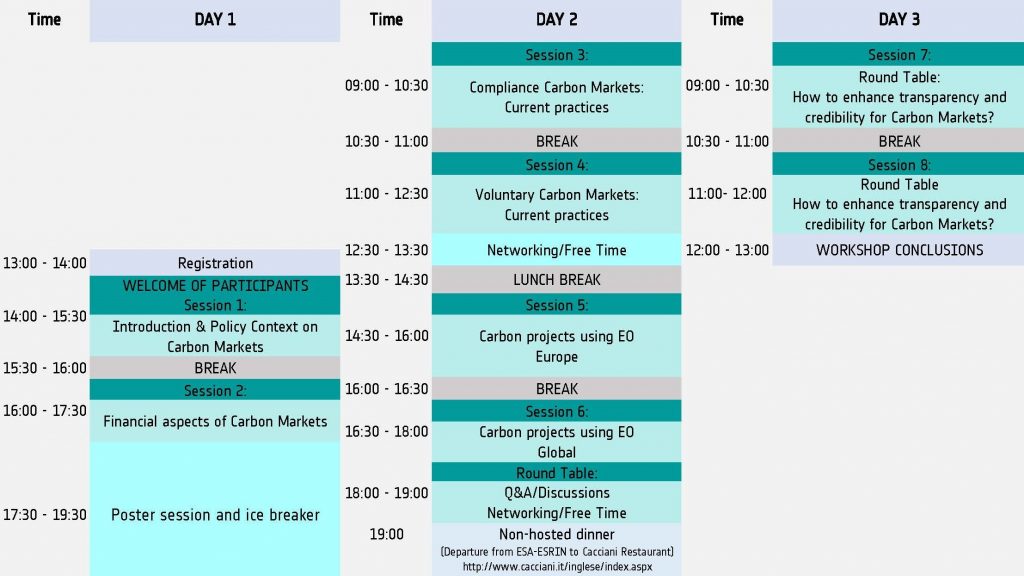BACKGROUND
Since the creation of the first Emission Trade System in 2005 (EU ETS), carbon markets (voluntary or compliance) have evolved and become an important mechanism to incentivize the reduction of greenhouse gas (GHG) emissions and combat climate change. Carbon credits are issued for each ton of carbon dioxide equivalent (CO2e) that is reduced or removed from the atmosphere through projects such as renewable energy production, afforestation, and energy efficiency measures. These carbon credits can be traded in various markets, including voluntary and compliance markets.
The effectiveness of these markets depends on the credibility and transparency of these carbon credits. The use of Earth Observation (EO) data has the potential to improve reliability, ensure accuracy, and bring consistency to carbon projects, which will ultimately contribute to the success of carbon markets and GHG reduction efforts. Transparency is a critical element of carbon markets as it ensures that the claimed carbon credits are genuine and accurately reflect the reduction of GHG emissions. Verification of carbon projects is essential to establish credibility and transparency in the carbon market.
The use of Earth Observation can provide reliable and independent verification of the effectiveness of carbon projects, enhancing the credibility of carbon credits traded in the market. For example, Earth Observation data can be used to monitor and verify the carbon stock of forest projects, track and measure changes in vegetation cover or assess GHG emissions, support Coastal Blue Carbon activities, among others. Satellite EO-based Monitoring, Reporting & Verification (MRV) systems have the potential to enhance transparency, accuracy and reliability when carbon credits are issued.
- Bring together experts in the field to share their experiences and knowledge, discuss current challenges and opportunities, and identify best practices and innovative solutions related to the use of Earth Observation data in support to carbon markets.
- Foster collaboration and networking among participants from different sectors, including academia, industry, finance , NGOs and governments, to promote knowledge exchange and support the development of effective and sustainable carbon markets.
- Explore the role of Earth Observation data in carbon markets and how it can improve transparency and credibility of carbon projects.
CONTACT INFO
For information regarding the submissions, author instructions, scientific committee related inquiries please contact
EO4Society.Conf@esa.int


